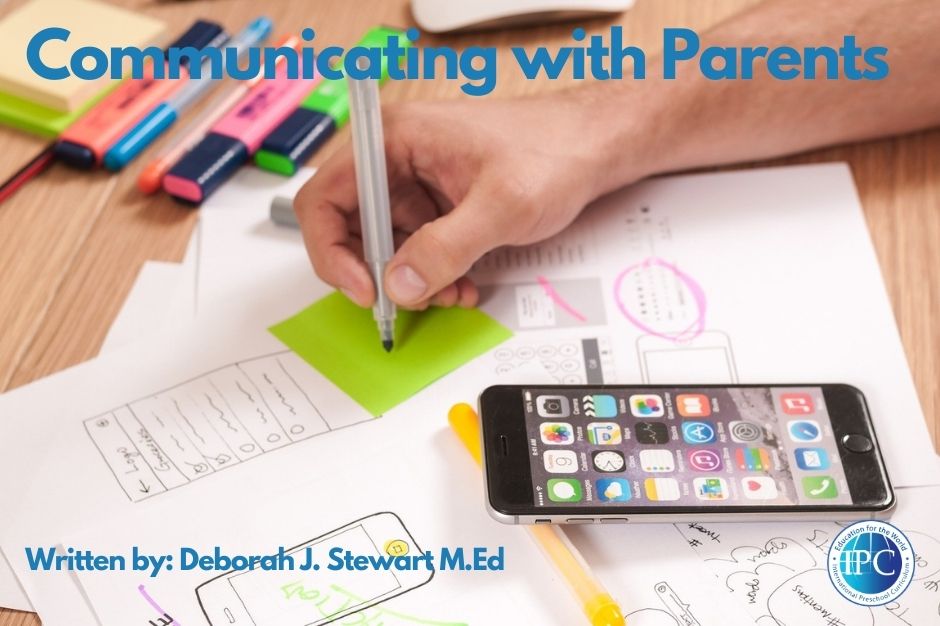
“What did you do at school today?” I asked my three year old.
“We Played” she replied.
Trying to get my daughter at age three to tell me anything more about her day was like running into a brick wall. I was lucky though, because when she went to preschool, I did too. What about all those parents who bring their little one to preschool or childcare and that is all they hear? What does it mean when a child responds with “I just played”?
As an early childhood professional, your role is to communicate what “play” means and consists of. Parents want feedback and not just the bad stuff. They want to know if their child has friends; what their child is learning; what their child ate; how long their child slept; and what their child did.
There are many ways to communicate and all should be part of your daily routine. Send home well written daily reports. Write neatly, clearly, and personalize the daily reports. Be available at the end of the day for a few minutes of conversation and prepared to talk about the events of their child’s day. Post your lesson plans and send home regular newsletters. If you have online access, send out email updates and memos.
Take time to communicate with parents. Consider ahead of time what types of things you can share and say so when a parent asks, you are prepared to share the GOOD news!
Daily Record Keeping
Keeping parents informed of their child’s activities, needs, and developmental progress is a critical part of a preschool teacher’s job. One method for keeping parents informed is by offering parents a written report of their child’s day.
A daily report can be short and simple but it should have your personal touch in the effort. Here are some tips on creating quality daily reports:
- Make sure you write neatly.
- Make sure you spell correctly. Just these two tips alone make a big difference in your ability to present yourself professionally and to communicate effectively.
- Include a variety of information in your daily reports such as the child’s schedule, favorite activities, friends, eating habits, and so forth.
- Avoid using the daily report as a tool for telling the bad news about a child’s day. This should be a separate conversation or report. The daily report should be about a child’s positive experiences, behaviors, growth, and development.
- Think about what a parent wants to know that only you have the ability to share.
- Keep the daily report short and concise – you don’t have to write a novel – just something simple and personable every day builds a good source of communication over time.
- If you use a photocopied daily report as a template – be sure the copies are clean and of good print quality. Over time, copied templates can start to look shabby and messy.
- Remember: Every child is different and every daily report should be reflective of each individual child in your care.
By Deborah J. Stewart M.Ed., Published by IPC Press, a division of IPC. All rights reserved. No part of this publication may be reproduced, stored in a retrieval system, transmitted any any form or by any means, electronic, mechanical, photocopying, recording, or otherwise, without the prior permission of the publishers. Opinions and views expressed in this publication do not necessarily represent those of IPC. © 2010 IPC Press
